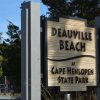Find a critic whose picks suit your palate
Jean-Baptiste Say is known for Say's Law, which tells us that real demand can only come from production, not from printing money or expanding credit. Makes sense to me.
Illahe Willamette Valley Viognier at $16 gets 92 McD points. Floral with honeysuckle and melon aromas. Apricot and honey flavors. Although this wine has a bit of residual sugar, the hint of sweetness is well balanced with proper acidity. Enhances lemon butter-sauced dishes perfectly.
Le Sec de Rayne Vigneau 2013 is very interesting. Normally with Chateau Rayne Vigneau, one thinks of delicious Sauterne blended of Sauvignon Blanc and Semillion. Le Sec is strictly SB and dry. WS gave it 90 points. On sale at $15, I’m adding a price point. Pale golden with yellow apple and melon rind aromas accented with thyme, chervil and tarragon. It is acid bright and finishes long and cleanly. “A pleasant marriage of fruit and herb flavors, with very fresh acidity," writes WS’s James Laube.
Domaines des Grandes Perrieres Sancerre 2013, $17, is another lovely dry white, from the Loire Valley in La Belle France. Nice minerality on the nose. Lemon zest and grapefruit on the palate with creamy texture and a crisp, long finish; 90 points McD.
Going upscale and switching to reds, Chateau Lascombes Margaux 2010 is rated from 88-91 (Tanzer) to 96 (Parker) and can be found for $100. Needs five in your cellar and will drink 2018 through 2040. Smart money would buy a couple of half bottles for $60 and hold your fire for a few years to see how it improves. Really smart money buys a case of 12 half bottles of Chateau Margaux for $675 from Zachys.
I can’t figure this one out. Fulls from Zachys are going for $750-$1,000/bottle. Chateau Margaux was rated 98 points. Anyhow, the Lascombes has a creme de cassis, floral nose accented by hints of smoke. Decent balance although the tannins were elevated to reflect aging potential. Great legs, intense with a long finish. Winemaker notes claim 90 percent new oak was used, but the oak aroma and flavors associated with new oak cooperage were muted. The halves will be ready sooner. Give them three years in either case and then make your buying decision.
Most may remember the hawking of 2009 Bordeaux by RP as best vintage of past 25 years. Review this site, which shows Parker’s recent (2012) revisit: www.bbr.com/fine-wine/bordeaux-2009-new-parker-scores. Careful readers will note most came in at their higher end of the range. Very few underperformed. My three best buys written of here were home runs. Troplong Mondot moved from 95 to 99. Pavie and Pape Clement came in at 100, and Gruaud Larose, my “pick of the litter,” came in 4 points over consensus at 96 points. Larose opened at $60, ready to drink 2015. If you can find a case priced under $1,200 and you are a big-buck buyer, jump in. By comparison, the Troplong Mondot came on at $100 and is now at a $200 plateau and tailing down. Ready 2018-20. Pape Clement came in at $140 and is tailing off from $175. I think it is going through a dead period and comes back from its dismal rating slide as several pundits are panning.
While editing, I decided I appeared boastful or impugning other critics. That is not my intention. Just noting we all, including you, my dear readers, have disparate palates. Scientifically proven like the global warming this summer exhibits. It is not about my palate but yours. Find a critic who has exposure, whose recommendations fit with your palate; then use the information to zero in. No wine BSer will choose wine that suits you 100 percent. Most writers do well in specific areas. My faves: Jancis Robinson, David Schildknecht (he uses delightful words that flow), Tony Galloni and the stingiest points man in the biz, with the most accurate, diverse palate, Stephen Tanzer.
I’m closing with a lovely 2010 from the best Left Bank, low-key, Bordeaux producer, Jean Gautreau of Chateau Sociando Mallet Haut-Medoc, $45, 92 points. I love Gautreau. He doesn’t knuckle under to the Cru Bourgeois or Cru Classé bureaucracy but goes indie. His wine reflects his philosophy. Au natural, let the terroir speak.


















































